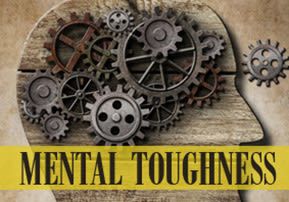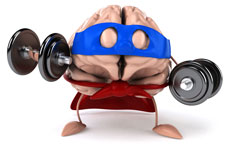
Mental Toughness
What goes on in the minds of champion athletes who consistently perform on a high level under all kinds of challenging, distracting and difficult circumstances?

Studies on mental toughness began about a decade ago. At that time, the research focused mainly in the area of sports psychology. The researchers wanted to know what was going on in the mind of athletes who were peak performers. These were men and women who on a daily basis consistently performed on a very high level under all kinds of challenging, distracting and difficult circumstances. By coming to understand the mental ingredients that characterized top performers, sports psychologists sought to develop coaching tactics and strategies to enable other athletes who were not performing up to their potential to improve their performance.
The researchers found that the peak performing athletes excelled in five areas which I will review here. This  paradigm is so helpful that Emuna Coaching has incorporated it in a modified form for the benefit of those who may not be aspiring Olympic champions.
paradigm is so helpful that Emuna Coaching has incorporated it in a modified form for the benefit of those who may not be aspiring Olympic champions.
1 .Affective (emotional) Intelligence – is the ability to control and regulate one’s emotions and moods in any circumstance so as to facilitate good performance. For our purposes we may focus on social performance or performance as a parent, spouse, businessperson, or servant of G-d. Our sages tell us that people are more inclined towards negative emotional states such as anxiety, fear, sadness and anger rather than positive emotions such as a sense of well-being, confidence, joy, optimism and hope. That’s why most of us need to learn strategies for being in touch with our strengths and sustaining positive emotions over time. By focusing a person on his or her strengths – those which are realized as well as those that are not yet realized, the negative emotions are automatically weakened and ultimately extinguished. Emuna coaching is based on the idea that G-d gave everybody certain strengths that are meant to be broadened and developed. We seek to improve what people are good at rather than to “fix” what they are not as good at. It’s not that we deny that people have “problems,” limitations and concerns that need to be addressed; it’s just that we address them through first helping people to feel empowered and have a solution-oriented achievement mindset.
2. Desire (Will) to Achieve – is an insatiable desire and commitment to consistently improve one’s performance levels and achieve success (a hard work ethic). This is probably the most important trait of all. Rabbi Arush speaks frequently about the importance of will saying that it is the foundation for being able to perform well in any area of life. Spiritually-oriented people benefit from exercises that help them differentiate between what is their own will, what is G-d’s will and how the two can overlap. In addition to praying for greater will, there are many techniques that an emuna coach can offer a person. For example: imagine that a miracle occurred and overnight you dreamed that you were totally and completely committed to a goal that is important to you and then you woke up a changed person with all of the qualities that you dreamed about. Imagine how you would look with that level of desire and commitment to achieve your goal. How would you feel? What would be the difference in the way you would think, speak and behave? How would others respond to you differently and how would you respond in turn to them? Now, what would it take for you to make the dream a reality? What small behavioral change, no matter how small could you try right away?
3. Resilience– is the ability to withstand and bounce back from situations where one has experienced negative outcomes in life due to pressures, challenges, disappointments and losses. The Torah teaches us that ups and downs, highs and lows are inevitable. So how can we accept and use the lows in order to bounce back and go even higher than we were before we dropped? It’s easy to see how resilience is dependent on will. People need incentives and encouragement to start again or to come back to Hashem, or to feel that an additional expenditure of effort will be worth it even though they have been through this before.
4. Attention Control– is the ability to manage one’s attention and focus over an extended period of time that may involve various types of distractions. One way that we do this is by determining what is important to us in life. When a person is sure about what he or she wants and their goals have high significance to them they can be taught to stay riveted to their goals in any circumstance. When we live in concert and alignment with our most cherished and meaningful goals we experience a sense of purpose which pulls our attention into alignment as well.
5. Self-Belief – is an unshakeable self-belief in one’s ability to perform in any situation and never experience doubts. This is another key skill which Rabbi Arush writes about in his book In Forest Fields in the beginning of Chapter 5. There Rabbi Arush explains that it is not enough to believe in G-d we must also believe in ourselves and our ability to use our G-d given resources in order to make the right decisions and live properly. The greatest enemy of a person are doubts that try to weaken his motivation, enthusiasm, confidence and self-esteem. The ultimate purpose of doubts are to pull a person completely away from G-d. That’s why we are so strict about avoiding philosophical speculation – it creates doubts in people’s minds.
Adapted from: Gordon, S. (2012) Strength-based approaches to developing mental toughness: team and Individual. The International Coaching Psychology Review. Vol. 7. No. 2.












Tell us what you think!
Thank you for your comment!
It will be published after approval by the Editor.